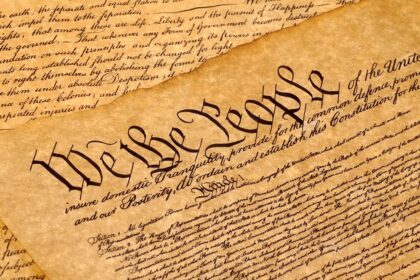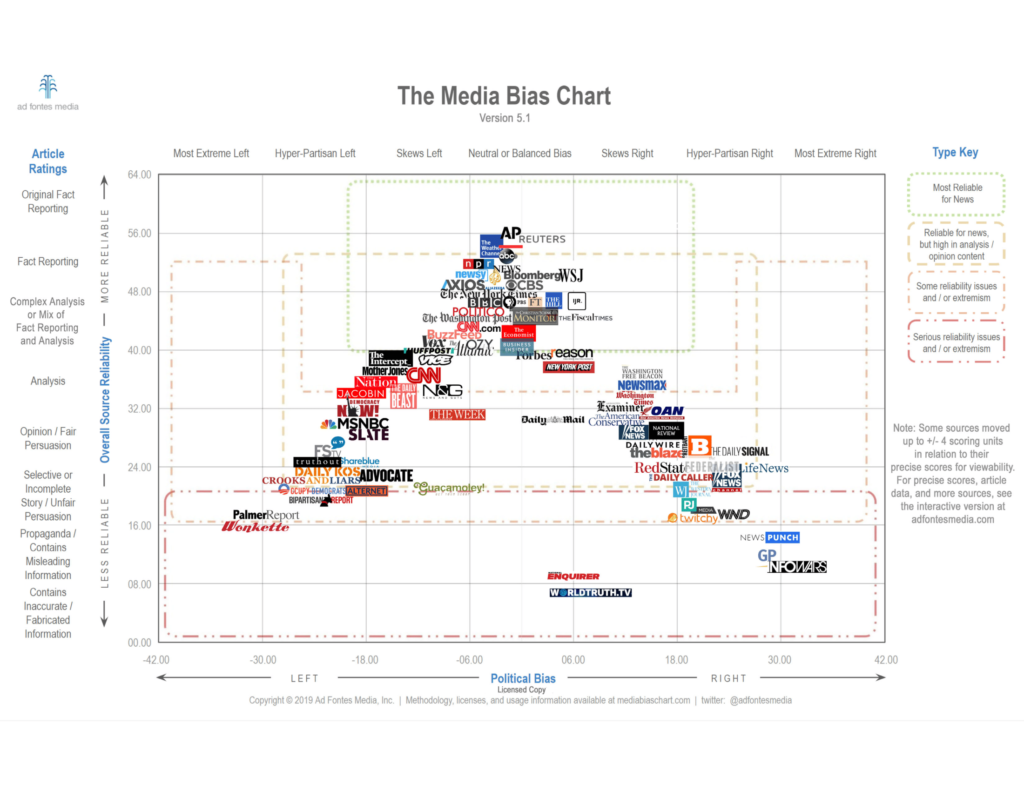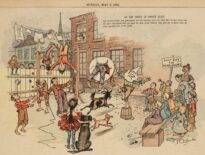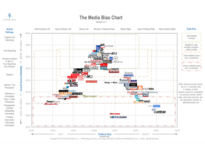
Perhaps our disappointment in one another, frustration with Presidential elections, and stress over 1 role in the entire world, isn’t a reflection of us, but of the office having too much power and influence.
U.S. elections and the attention world leaders such as the President (any President), have in the last few decades, really drawn attention to the power and influence wielded by the world’s highest offices.
From our point of view of what’s going on with the *industry* of social media, it’s hard not to take pause at how on one hand, ordinary people are crying foul at the voice politics takes through online media, while on the other hand, those very governments are the only organizations empowered to keep themselves out of it. And rather than keeping political influence and media separate, governments are crying foul at the media for being the problem, and responsible for the problem, rather than pointing the finger at themselves for using it for the very reasons they’re saying they want to prevent.
There is a bit of a misunderstanding about the role and responsibility of news media in society. The 1st Amendment in the United States implies that while government can make no law abridging (meaning, limiting) the freedom of the press, that amendment doesn’t prohibit the government from leveraging and influencing it.
As a result of that, and a history of the news media stressing that it’s fair, balanced, and factual, for the same of establishing trust in the brand, people tend to perceive and expect that the news media is responsible for only facts and that it’s protected from the government.
First Amendment to the United States Constitution
Congress shall make no law respecting an establishment of religion, or prohibiting the free exercise thereof; or abridging the freedom of speech, or of the press; or the right of the people peaceably to assemble, and to petition the Government for a redress of grievances.
“Without a free and independent media, is true democracy unattainable?“
Hang on… such a question contains a false assumption. We do not and never had an independent press.
A free press, maybe. Arguable and ideally, yes. But the media is not independent of the government.
Most people, throughout the world, are of a misplaced point of view, likely driven by governments, to convince people that they can trust the media.
The ongoing debate throughout politics, news media, fake news, and social media, really requires you go two or three layers deeper than what’s discussed on the surface.
Here are a few facts; unequivocal facts that are absolutely and with great certainty true – though you may believe or perceive otherwise and could certainly show me articles, papers, research, and politicians who claim otherwise:
- The media is not and never ever ever ever has been based on facts.
- All media is and always has been biased by money and influence (power)
- There is really no such thing as “Fake News” – there is incomplete news, biased / editorial news, and fiction. Fake News is a fabricated idea to help persuade opinions. If it’s false, it’s false. If it’s true, it’s either incomplete or opinionated. It is never, ever, complete and factual.
- The United States’ 1st Amendment obligates that the Federal Government stay out of the Press and Speech, completely. It has never actually done so.
- News is not independent. It never has been and likely never will be.
- There is ZERO privacy in media. You do not have privacy, aren’t due privacy, and it technically isn’t really possible. If you are consuming media, you are data being monetized. Always have been… that’s not an internet thing.
- Data about you isn’t “your data.” Data about you is data others have, it’s their data, about you. The internet doesn’t change this fact that has always been true… magazines collected and monetized information about you too, they always have.
With all that in mind….
Is true Democracy unattainable?
In fact, yes.
It doesn’t exist anywhere in the world.
What we have are democratic processes. We have Republics with elected representatives who are influenced democratically.
What is true is that anything approximating a Democracy is impossible without Free (and protected) speech because a Government empowered to control what people think, will.
Free speech (protecting a freedom of the press) enables the people to retain control over the Government. We enable the Government, it serves us; not the other way around.
Government doesn’t give us rights, we protect our rights from it.
Government doesn’t create opportunities, jobs, nor wealth or equality, we empower it to tax, regulate, and create laws that force social change.
And without a freedom of press/speech, we lose that power.
Without that, we are not democratic, we’re merely doing what that government says we should.
Notice, I limited my point so far to the question of Free Media.
We do not and never had an independent press.
And we don’t need an independent press in order to have democratic situations.
The government has always and will always influence the press.
“They say it takes ‘two to tango,’ and in this case it’s a combination of politics & media,” John Zozzaro. “Journalistic integrity has been outpaced by click bait false narratives, and technology that preys on your deepest fears and concerns. This has been a very slow boil over the last three decades. What we are witnessing play out in modern day politics, is the perpetuated polarization driven by platform algorithms built on ‘more = more’
It’s no fault but our own uneducated and uninformed selves… The unfortunate reality is we have put too much trust in what the news stations tell us and have displayed such an incredible appetite for sharing disinformation, that our enemies abroad no longer need weapons to watch us crumble, all they need is a brilliant data scientist and a solid marketing budget.”
The government regulates businesses, advertising, and what can be on the media, politically. That, in turn, means that the media is interdependent with the government.
Media isn’t biased. Rather, We The People (the public) frustrated over it being biased is only part of the story and the least of our challenges. News media is divided.

We’re distracted to perceive that the challenges in the News Industry are the News Industry’s fault (unable to evolve to how the internet works, unwilling to change the business model) but when you look at a data set that Ad Fontes Media studies, it’s immediately apparent that the influence, the divisiveness, is political.
To avoid too much control over it, we must be diligent in always questioning the motivations and goals of a government engaging on those FACTS above. Empowering the government to rule/regulate/prosecute ANYTHING related to those facts, means we’re enabling the government to have more control and forcing the media to be more dependent on it.
That’s not a good thing. No matter which side of that aisle you find yourself on, left or right, Democrat or Republican, hopefully you can agree that our neighbors, learning to appreciate that the media IS biased, while also reigning in how politics is the cause of the divide of media, we’re all better off.
Media will remain free, as long as we keep fighting efforts by governments to limit what’s allowed. But it will never be independent, and we must always push back on government to make sure it doesn’t become more dependent.
A free, but dependent press is a press that CAN say whatever it wants, but that doesn’t mean it will nor wants to.



[…] In media, we struggle with the never-ending challenge of Media Literacy and the balancing of human rights in communication and influence. That is for example, what rights do people have to decide how they use their property in communicating information? Can people use that property to communicate fictions or “fake news”? Fake news is not only a sensationalized notion in politics, it’s a very real and valid form of media evident in The National Enquirer, The Onion, Babylon Bee, or Saturday Night Live and The Daily Show’s commentary on News. Where is the line drawn wherein a person and their company certainly has the right to say whatever they want when it also opens up society to the implications of lies, misunderstanding, fictions, and bias. […]
[…] We continually face the challenge of media literacy and the balancing of human rights in communication and influence. A critical question arises: what rights do people have to decide how they use their platforms to communicate information? Can platforms or publishers be used to intentionally spread disinformation or fictions? Disinformation, far from being a sensationalized notion, is a deeply embedded reality in media, seen not just in political arenas but in outlets like The National Enquirer, or satirical publications like The Onion, Babylon Bee, and shows such as Saturday Night Live or The Daily Show. These platforms blur the lines between humor, exaggeration, and deception, making it crucial to ask: where do we draw the line between free expression and the societal dangers of disinformation, misunderstanding, and bias? […]